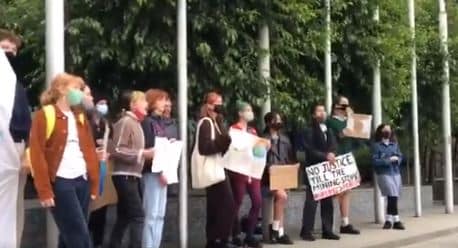Eight Australian teenagers and their 86 year-old litigation guardian, Sister Brigid Arthur, are continuing their Federal Court action against the Minister for the Environment this week. The teenagers are arguing that the minister owes a duty of care to young Australians and must therefore take action on climate change.
Vickery Coal Pty Ltd was listed as a respondent to the claim in February, as the claimants are seeking an injunction against its Vickery Extension Project until after the case is decided. Vickery Coal, a wholly-owned subsidiary of Whitehaven Coal Ltd (ASX: WHC), is seeking to expand its mine located 25 kilometres outside Gunnedah, NSW in order to increase its lifetime coal output by 25 per cent.
The expansion is estimated to be equivalent to 100 million tonnes of carbon dioxide emissions. This is roughly 40 per cent of Australia’s 2020 emissions and just under 20 per cent of the country’s pre-coronavirus annual emissions.
According to Dr Laura Schuijers of University of Melbourne, the duty of care claimed by the teenage activists is not currently established in Australian law. It would have to be found by the judge before it could be decided that the coal mine expansion breaches that duty.
Previously, legal challenges to fossil fuel projects have relied on environmental law, but ministers generally have broad discretion in how they “balance” environmental and economic interests. The duty of care inference is a novel approach.

The case does, however, have a precedent (in the general sense of the word) in the Netherlands. In December 2019, the Dutch Supreme Court affirmed a claim that the government has a legal responsibility to take immediate action against climate change, based on the country’s responsibility under the European Convention on the Protection of Human Rights and Fundamental Freedoms.
Similarly, in Juliana v United States of America, youth plaintiffs sued the US government claiming that it had failed in its duty to protect “public grounds.” A District Court Judge in Oregon ruled that access to a clean environment was a fundamental right and referred the case to a higher court, but the claim was subsequently dismissed.
Here in Australia, the teenage claimants’ chances of success are highly uncertain. Still, if successful their case would have dramatic implications for the fossil fuel industry and no doubt many other aspects of Australian society and economy.
If you enjoyed this article, you can follow Christian on Twitter for updates.